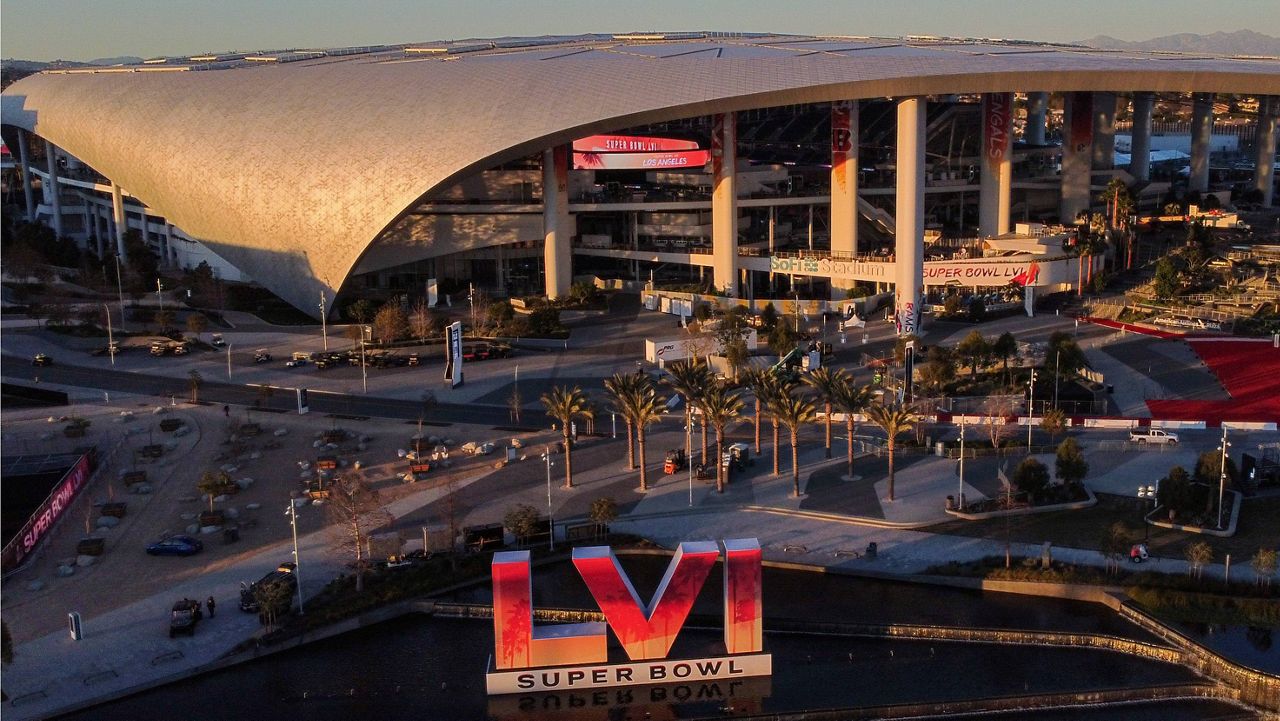The Department of Homeland Security confirmed Thursday it is closely monitoring reports of a potential Canada-style protest involving a convoy of trucks traveling to several U.S. cities in the coming weeks.
What You Need To Know
- The Department of Homeland Security confirmed Thursday it is closely monitoring reports of a potential Canada-style protest involving a convoy of trucks traveling to several U.S. cities in the coming weeks
- In a bulletin sent to law enforcement agencies this week, DHS said it has received reports that truckers are planning to potentially block roads in major metropolitan cities in the United States in protest of, among other things, vaccine mandates for truck drivers.
- The document warns the convoy could begin this weekend in Southern California, disrupting traffic around the Super Bowl, before traveling cross-country and reaching Washington, D.C., in time for President Joe Biden’s State of the Union address March 1
- A truck protest in the U.S. could mirror bumper-to-bumper demonstrations held in Canada that have forced Ford, Toyota and General Motors to shut down plants or otherwise curtail production on both sides of the U.S.-Canada border
In a bulletin sent to state and local law enforcement agencies this week, DHS said it has received reports that truckers are planning to potentially block roads in major metropolitan cities in the United States in protest of, among other things, vaccine mandates for truck drivers."
Yahoo News was the first to report on the bulletin. According to several media outlets, the document warns the convoy could begin this weekend in Southern California, disrupting traffic around the Super Bowl, before traveling cross-country and reaching Washington, D.C., in time for President Joe Biden’s State of the Union address March 1.
In a statement emailed to Spectrum News, a DHS spokesperson said the agency has not seen any specific calls for violence associated with the convoy but is working closely with federal, state and local law enforcement “to continuously assess the threat environment and keep our communities safe.”
The DHS bulletin, according to reports, warns that “if hundreds of trucks converge in a major metropolitan city, the potential exists to severely disrupt transportation, federal government operations, commercial facilities, and emergency services through gridlock and potential counterprotests.”
A truck protest in the U.S. could mirror bumper-to-bumper demonstrations held in Canada over the past two weeks in Ontario and Alberta. Those protests, over vaccine mandates for cross-border truckers and other COVID-19 restrictions, have forced Ford, Toyota and General Motors to shut down plants or otherwise curtail production on both sides of the U.S.-Canada border.
Since Monday, the protests have obstructed the Ambassador Bridge that connects Windsor, Ontario, to Detroit and carriers a quarter of all trade between the U.S. and Canada.
Ford said its Windsor engine plant reopened Thursday after being shut down Wednesday because of a lack of parts. But the factory and the company’s assembly plant in Oakville, Ontario, near Toronto, are operating at reduced capacity, the automaker said.
“This interruption on the Detroit-Windsor bridge hurts customers, auto workers, suppliers, communities and companies on both sides of the border,” Ford said in a statement. “We hope this situation is resolved quickly because it could have widespread impact on all automakers in the U.S. and Canada.”
On the U.S. side, GM canceled the second shift on Wednesday and the first shift Thursday at its midsize SUV factory outside Lansing, Michigan.
Toyota said it will not be able to manufacture anything at three Canadian plants for the rest of the week because of parts shortages. In a statement, the automaker blamed supply chain disruptions, weather and pandemic-related problems, but the shutdowns came just days after the blockade began Monday.
Stellantis, formerly Fiat Chrysler, said all of its North American factories were running Thursday, but shortages because of the blockade forced it to shorten shifts at several plants.
White House press secretary Jen Psaki said Wednesday the Biden administration has been in contact with Canadian officials, Michigan Gov. Gretchen Whitmer and auto companies. She added that U.S. Customs and Border Patrol has rerouted trucks from the Ambassador Bridge to the Blue Water Bridge, which is 70 miles away and has experienced hourslong delays, and opened additional lanes at the Port of Detroit to process diverted traffic.
Psaki said Biden supports peaceful protests, but she added, “I think it's important for everyone in Canada and the United States to understand what the impact of this blockage is — potential impact on workers, on the supply chain. And that is where we are most focused.”
The Associated Press contributed to this report.




